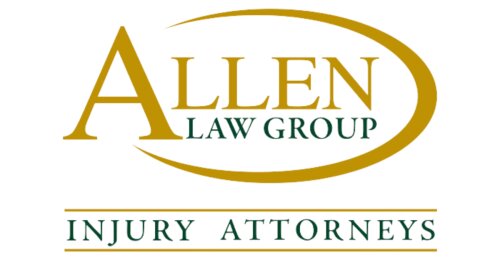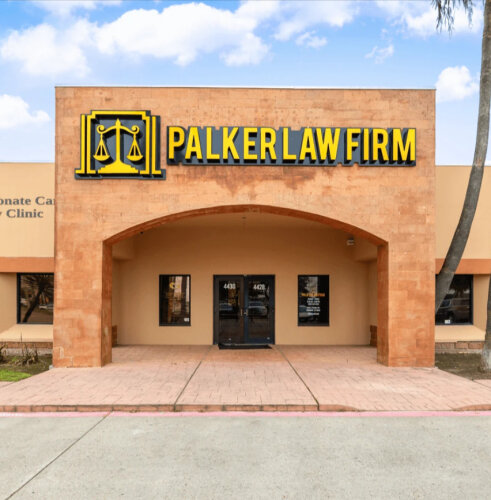Best Insurance Fraud Lawyers in Illinois
Share your needs with us, get contacted by law firms.
Free. Takes 2 min.
Or refine your search by selecting a city:
List of the best lawyers in Illinois, United States
About Insurance Fraud Law in Illinois, United States
Insurance fraud is a serious criminal offense in Illinois that involves any act committed with the intent to obtain a benefit or advantage from an insurance process through deception or false information. This includes providing false claims, exaggerating losses, or staging accidents to receive insurance payouts. Insurance fraud can relate to many types of insurance, such as auto, health, property, or life insurance. Both individuals and companies can be held liable for committing insurance fraud. Penalties can range from fines to significant jail time, depending on the severity and circumstances of the offense.
Why You May Need a Lawyer
Legal representation is crucial when dealing with insurance fraud allegations or investigations. Here are some common situations where a lawyer can help:
- Being accused of submitting a false insurance claim
- Learning you are under investigation for potential insurance fraud
- Receiving a denial of an insurance claim with accusations of fraud
- Accidentally providing incorrect information on an insurance application
- Facing criminal charges related to insurance fraud schemes
- Needing guidance if you suspect someone else of committing insurance fraud
A lawyer can protect your rights, provide guidance on Illinois insurance fraud laws, ensure your side of the story is heard, negotiate with prosecutors, and work to minimize potential penalties or consequences.
Local Laws Overview
Illinois treats insurance fraud as a criminal offense under state law. The Illinois Insurance Code outlines the definitions and penalties related to insurance fraud. Insurance fraud can be prosecuted as a misdemeanor or felony, depending on the value of the fraudulent claim and the details of the case. Common types of insurance fraud in Illinois include:
- Providing false information on insurance applications
- Staging collisions or accidents
- Submitting claims for injuries or damages that did not occur
- Inflating the value of theft or damage claims
- Multiple claims for the same loss at different companies
Illinois also has specific mandates for insurers to report suspected fraud to the Illinois Department of Insurance. Convictions can result in restitution, fines, community service, and jail or prison time. Insurance companies may also pursue civil actions for recovery of funds paid out under fraudulent claims.
Frequently Asked Questions
What exactly is insurance fraud according to Illinois law?
Insurance fraud in Illinois means intentionally deceiving an insurance company for financial gain. This can involve false statements, fake documents, or filing claims for incidents that never happened.
Is insurance fraud a felony in Illinois?
It can be. Insurance fraud is charged as a felony if the value of the fraudulent claim is more than 300 dollars. Lower amounts may be charged as misdemeanors.
What are the potential penalties for insurance fraud in Illinois?
Penalties may include restitution, significant fines, probation, community service, and jail or prison time. Felony convictions can lead to long-term consequences, including a permanent criminal record.
Can I be charged for insurance fraud if I made a mistake on my claim?
Honest mistakes are typically not prosecuted as insurance fraud. However, repeated or significant errors, especially if you benefited financially, could lead to legal scrutiny. Intent is an important factor.
What should I do if I’m under investigation for insurance fraud?
You should contact a lawyer experienced in insurance fraud as soon as possible. Avoid discussing the investigation with others, including insurance adjusters or law enforcement, before seeking legal advice.
Can insurance companies sue me separately from criminal charges?
Yes. Insurance companies may bring civil lawsuits to recover money paid under fraudulent claims, even if criminal charges are not filed or are dropped.
Do whistleblowers have protection in insurance fraud cases in Illinois?
Yes, whistleblowers who report insurance fraud can have certain protections, especially if their information leads to prosecution. Speak with a lawyer to understand your rights before acting.
How can I report suspected insurance fraud in Illinois?
Suspected fraud can be reported to the Illinois Department of Insurance, your insurance company’s fraud unit, or local law enforcement.
Are there special rules for health insurance fraud?
Health insurance fraud is prosecuted with the same seriousness as other insurance fraud in Illinois and may involve additional federal laws if public programs like Medicare or Medicaid are involved.
How long does the state have to bring insurance fraud charges?
The statute of limitations for insurance fraud varies based on the type and amount of the alleged fraud but is generally within 3 to 5 years from the date of the offense.
Additional Resources
If you have questions or concerns regarding insurance fraud in Illinois, the following organizations and agencies can provide information or assistance:
- Illinois Department of Insurance
- Office of the Illinois Attorney General
- Local State's Attorney’s Office
- National Insurance Crime Bureau
- Illinois State Bar Association - Lawyer Referral Services
Next Steps
If you are facing insurance fraud allegations or need legal advice regarding insurance fraud in Illinois:
- Contact an attorney who specializes in insurance fraud or white-collar criminal defense as soon as possible
- Gather any relevant documents, claims, correspondence, or evidence related to your case
- Do not destroy any documents or try to handle the situation alone
- Request a consultation to discuss your case and explore your legal options
- Cooperate with your attorney and follow their advice to ensure the best possible outcome
Dealing with insurance fraud allegations can be overwhelming, but prompt legal assistance can help protect your rights and guide you through the process.
Lawzana helps you find the best lawyers and law firms in Illinois through a curated and pre-screened list of qualified legal professionals. Our platform offers rankings and detailed profiles of attorneys and law firms, allowing you to compare based on practice areas, including Insurance Fraud, experience, and client feedback.
Each profile includes a description of the firm's areas of practice, client reviews, team members and partners, year of establishment, spoken languages, office locations, contact information, social media presence, and any published articles or resources. Most firms on our platform speak English and are experienced in both local and international legal matters.
Get a quote from top-rated law firms in Illinois, United States — quickly, securely, and without unnecessary hassle.
Disclaimer:
The information provided on this page is for general informational purposes only and does not constitute legal advice. While we strive to ensure the accuracy and relevance of the content, legal information may change over time, and interpretations of the law can vary. You should always consult with a qualified legal professional for advice specific to your situation.
We disclaim all liability for actions taken or not taken based on the content of this page. If you believe any information is incorrect or outdated, please contact us, and we will review and update it where appropriate.
Browse insurance fraud law firms by city in Illinois
Refine your search by selecting a city.













